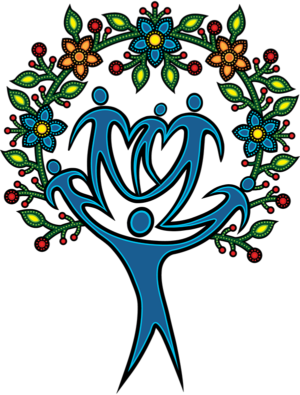Wellness Resiliency and Partnerships (WRaP)
Website: Visit
Main Contact: N/A
Tel: See website
Address: #6 St. Vital Ave, St. Albert, AB
About
The Wellness Resiliency and Partnership (WRaP) project provided school-based individualized mentorship and coaching supports for children and youth with Fetal Alcohol Spectrum Disorder (FASD) in schools from 2009 – 2017. The goal of the project was to maximize school engagement, increase academic success and enhance students’ social, emotional, and physical well-being.
The WRaP 2.0: FASD Coaching Partnership Project is a five-year collaboration (February 2021 to January 2026) between the Ministry of Education, Ministry of Community and Social Services and Alberta’s 12 FASD Service Networks that seeks to maintain the same goals as the WRaP Project while extending supports province wide.
Through the services of FASD Instructional Coaches, including at-the-elbow assistance and professional development, school authority staff will be supported to enhance their capacity to meet the education needs of students with FASD (Early Childhood Services – Grade 12).
Objectives
- Increase the capacity of teachers and schools to meet the educational needs of children and youth (ECS to Grade 12) with FASD.
- Teachers and school leaders will increase their knowledge and skills regarding how to support students with FASD by engaging in current best practices as shared by the FASD Networks through FASD instructional coaches.
- Schools will enhance their capacity by incorporating FASD-informed approaches into their classroom communities, as part of a continuum of supports and services.
Region
Provincial.
Program Description
PRINCIPLES OF PLANNING
Key principles were used during the planning phase of the WRaP 2.0: FASD Coaching Partnership Project to ensure that formal decisions reflected effective ways to achieve the project objectives while taking into account diverse perspectives, needs, and impacts of stakeholders. The principles of planning included:
Collaboration across ministries and stakeholders creates a shared understanding of FASD across the lifespan.
Individuals affected by FASD and their caregivers need local access to services and supports as needed.
Community input is an important and fundamental component of planning for services related to FASD. This includes Indigenous and cultural groups.
Evaluation and research inform quality improvement practices and strategic planning.
Continued integration is integral to the strategic and operational planning processes.
PROJECT ASSUMPTIONS
During the project planning important assumptions were identified in order to manage uncertainty and accommodate unexpected barriers or outcomes. These included:
Schools and school boards see the value of the WRaP 2.0 project.
Those involved with children and youth with FASD in the education sector will benefit from professional development and instructional coaching that will result in:
Enhanced knowledge of FASD, FASD assessment and diagnosis, and FASD support strategies.
Enhanced knowledge and skills regarding FASD-informed classroom strategies, and individualized support plans for students with FASD.
This in turn will result in an increased ability to address the unique needs of children and youth with FASD.
There is a need for enhanced, mutually beneficial partnerships and communication between parents and caregivers of children and youth with FASD, community FASD service providers, and teachers and school stakeholders.
Parent and caregivers will benefit from learning about FASD-informed classroom strategies and individualized support plans for students with FASD, to enhance partnership and collaboration with the education sector and better address the unique needs of children and youth with FASD.
FASD Service Networks and community service providers will benefit from learning about FASD-informed classroom strategies and individualized support plans for students with FASD, to enhance partnership and collaboration with the education sector and better address the unique needs of children and youth with FASD.
Alberta FASD Service Networks have the capacity to implement the project.
